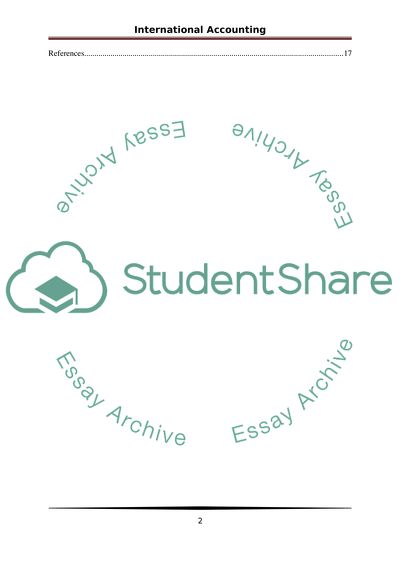Cite this document
(Importance of Financial Information Assignment Example | Topics and Well Written Essays - 3500 words, n.d.)
Importance of Financial Information Assignment Example | Topics and Well Written Essays - 3500 words. Retrieved from https://studentshare.org/finance-accounting/1738207-international-accounting
Importance of Financial Information Assignment Example | Topics and Well Written Essays - 3500 words. Retrieved from https://studentshare.org/finance-accounting/1738207-international-accounting
(Importance of Financial Information Assignment Example | Topics and Well Written Essays - 3500 Words)
Importance of Financial Information Assignment Example | Topics and Well Written Essays - 3500 Words. https://studentshare.org/finance-accounting/1738207-international-accounting.
Importance of Financial Information Assignment Example | Topics and Well Written Essays - 3500 Words. https://studentshare.org/finance-accounting/1738207-international-accounting.
“Importance of Financial Information Assignment Example | Topics and Well Written Essays - 3500 Words”, n.d. https://studentshare.org/finance-accounting/1738207-international-accounting.


